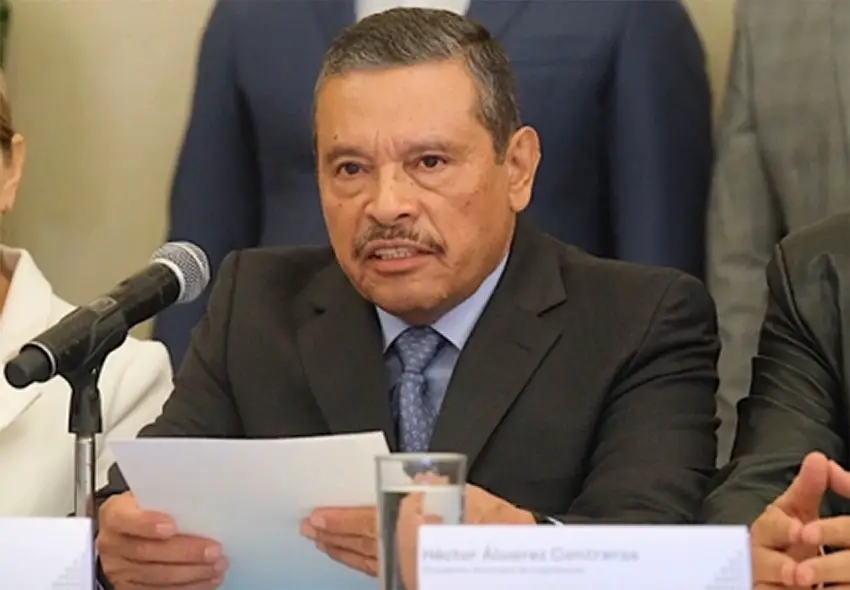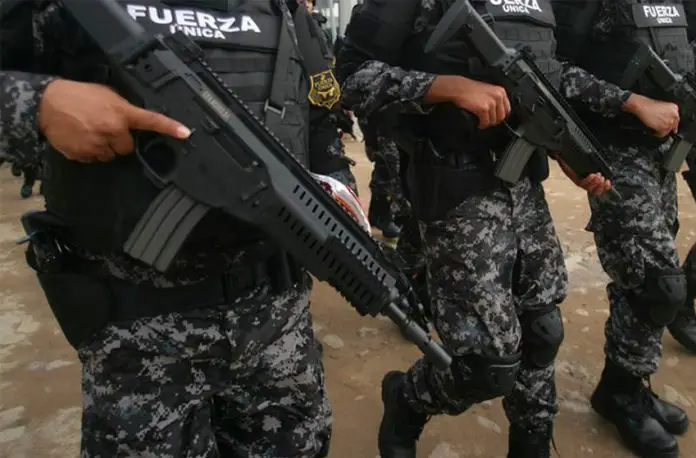A retired army general and former secretary of security in Nuevo León was sworn in yesterday as the chief of the new metropolitan police force in Guadalajara, Jalisco.
Arturo González García will be responsible for a 7,500-strong force that will operate across the metropolitan area of the Jalisco capital.
Eight of nine mayors in the greater Guadalajara area as well as the Jalisco government voted in favor of giving the Metropolitan Security Agency direct responsibility for combating crime rather than only generating public security policy.
González was given a period of 30 days to prepare an operational plan for the force.
“It will be designed through the identification of the strengths, weaknesses, opportunities and internal and external threats in security matters in the metropolitan area,” the new police commissioner said.
The 64-year-old explained that his plan will be based on the National Police Model that was designed by the National Public Security System and approved by the National Security Council last month.
Federal Security Secretary Alfonso Durazo expressed confidence that the new metropolitan police force will help to guarantee peace in a city where there has “historically” been a strong organized crime presence.
“We’re going to close this cycle of violence that the state [of Jalisco] has lived” throughout the administrations of successive federal governments, he said.
“We won’t allow any criminal group to claim for itself the name of a federal entity such as Jalisco,” Durazo added, referring to the Jalisco New Generation Cartel, Mexico’s most power and dangerous criminal organization.
“Without apportioning blame or shirking responsibilities, federal, state and municipal authorities must join forces . . . We have the obligation to yield results.”
The security secretary predicted that the results in Guadalajara could be similar to those achieved by the single-command police force in the Comarca Lagunera region, which takes in parts of both Coahuila and Durango.

“That area doesn’t even appear in [crime] statistics now,” Durazo said. “If there’s no coordination or single operational command, the possibility of effectively pursuing criminals is practically zero.”
Jalisco Governor Enrique Alfaro also expressed confidence that the new metropolitan police will help to reduce crime, adding that the capacity of municipal forces to combat organized crime has been exceeded.
Guadalajara Mayor Ismael del Toro pointed out that before the new policing model can be implemented, it must be ratified by municipal councils.
One municipality where local lawmakers have expressed doubt about the new police force is Tlaquepaque.
Morena party councilors yesterday called for more discussion, analysis and debate before a ratification vote is held.
Alberto Mercado Chavarín, Morena coordinator in Tlaquepaque, said the party will support any attempt to improve security in Guadalajara but asserted that it is not yet clear how the coordinated policing model will work.
“How is this Frankenstein going to work? Who came up with [the idea]? Where are the qualified voices that suggested this model? Yes to metropolitan coordination but let’s first see how [it will work], it has to be an applicable model,” he said.
Ranks of the new force, which replaces the Fuerza Única, will be drawn from the municipal police forces in greater Guadalajara.
Source: Milenio (sp), Informador (sp)
